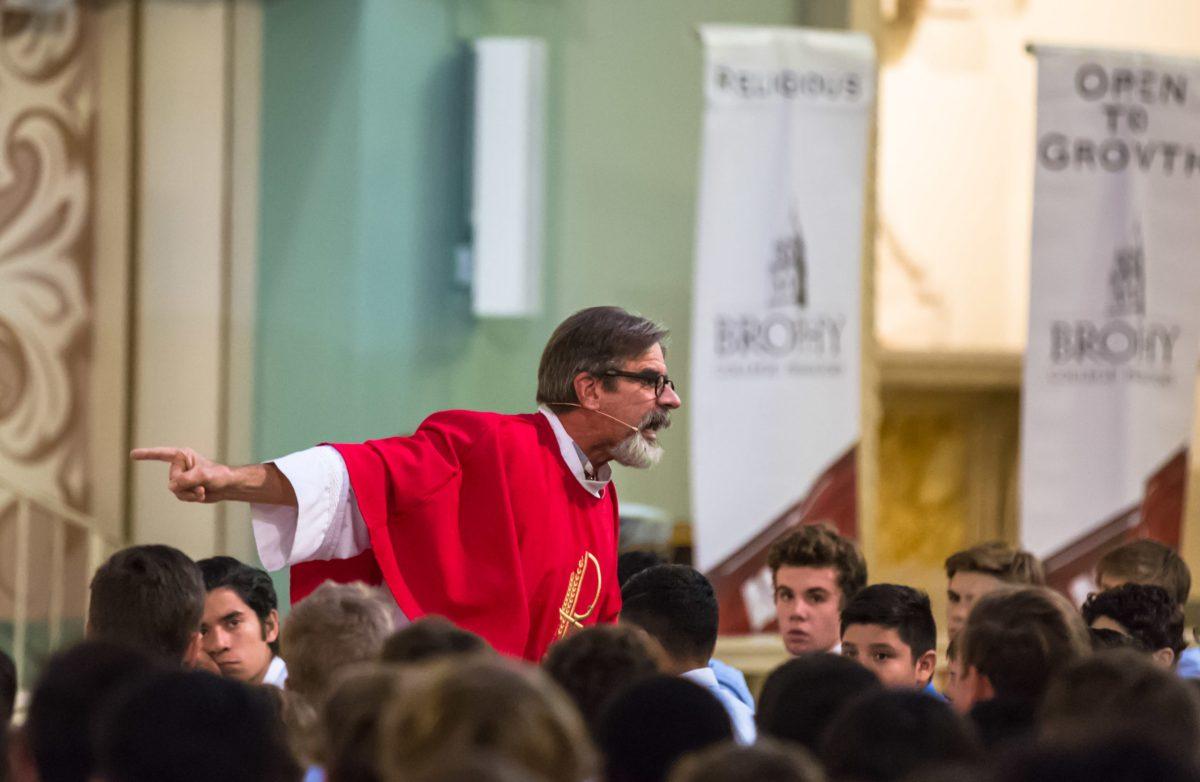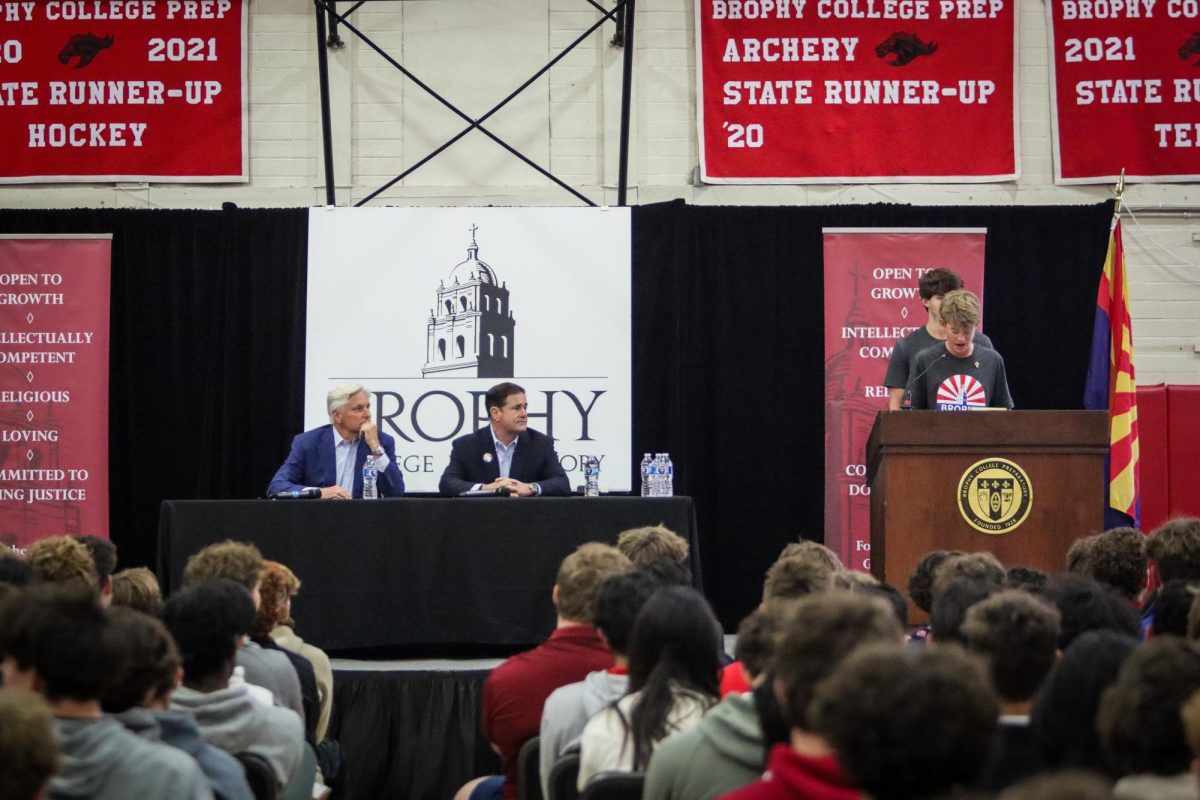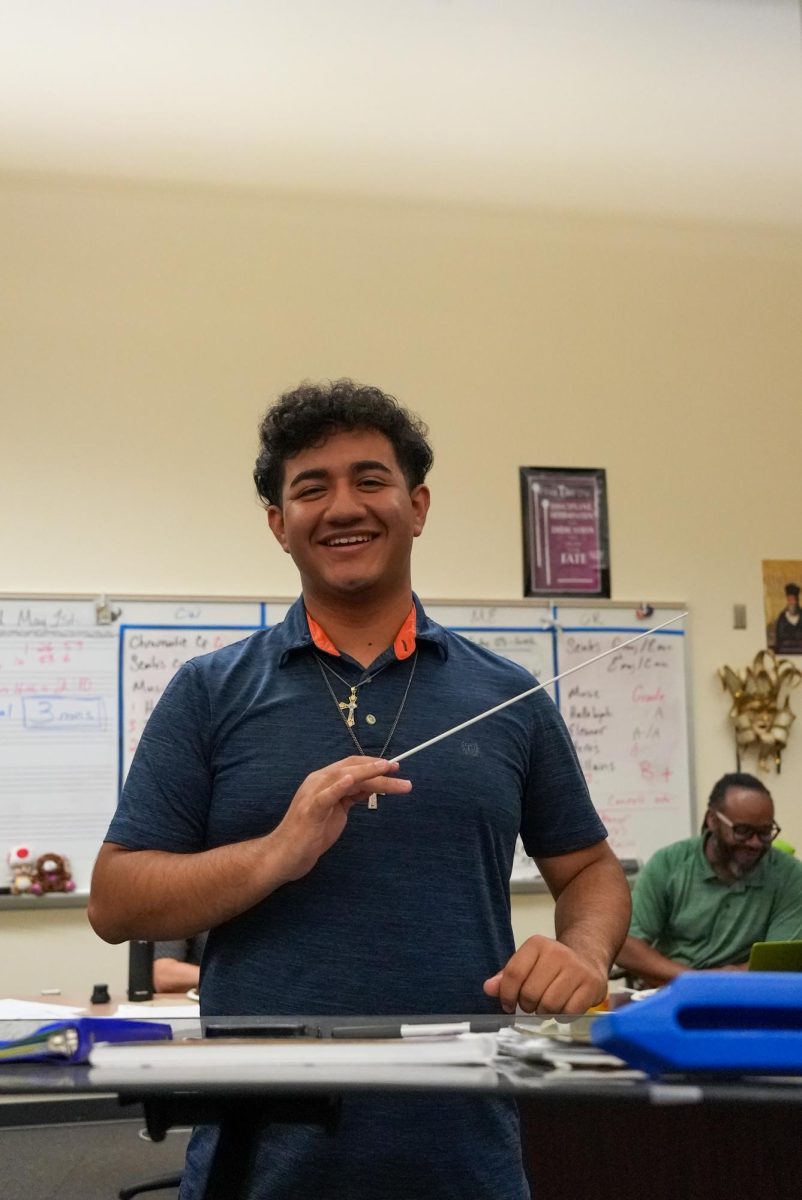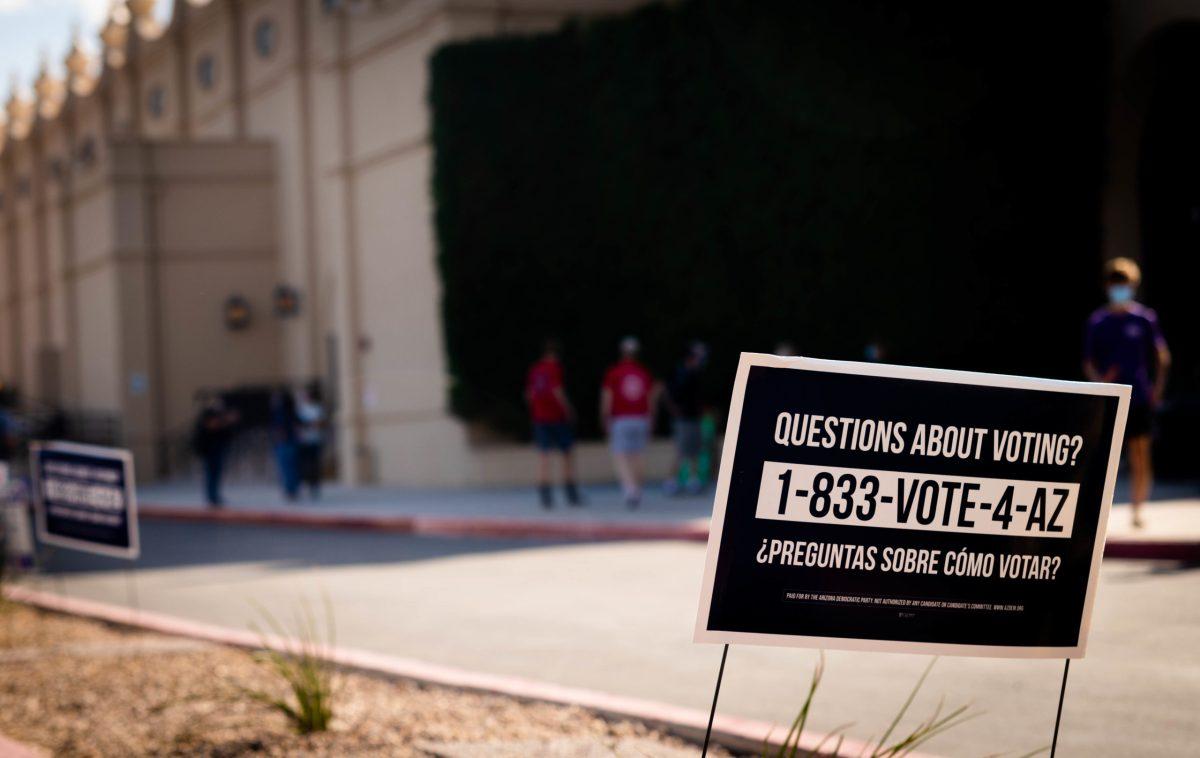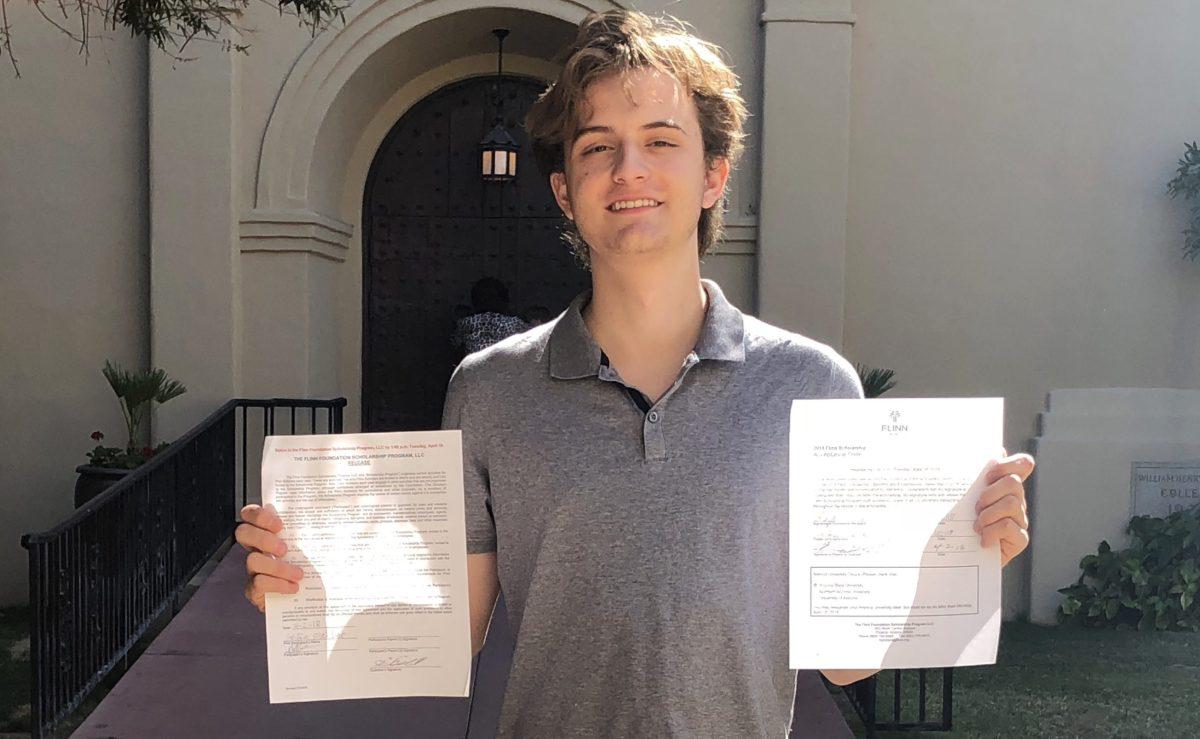Photo by Aditya Manuel ’17 | Fr. Matt Ruhl speaks to the student body Aug. 26 at the Mass of the Holy Spirit.
By Anthony Cardellini ’17 & Andrew Howard ’17
THE ROUNDUP
When The Rev. Fr. Matt Ruhl S.J. gave his homily at the Mass of the Holy Spirit Aug. 26, he accused drug users for having blood on their hands for the murders of those in places like his hometown of Belize.
Fr. Ruhl gave three key points on how to stop drug users in order to help prevent the murders of the cartel.
“One … Vow to never buy sell or use drugs. Two … Educate yourself on the evils of the cartel. Three … stand up and resist those using drugs,” he said.
He also said we can spread this through the ministry of the word, which he said can happen in many places.
“The ministry of the word is when you build up another human being, it happens in locker rooms and around dinner tables, it happens on the bus,” he said. “Ignatius was a proponent of conversation that builds up.”
Fr. Ruhl said he plans on spreading his message by speaking to other Jesuit high schools and giving them the same three keys he talked about in his homily.
Senior Alvaro Marcelino-Hernandez said that he was particularly affected by Fr. Ruhl’s message, since he has lost cousins to gang violence in Mexico.
“His homily was amazing,” he said. “It was really energizing. The way he spoke, we’re not used to that.”
Marcelino-Hernandez also said that Fr. Ruhl was inspiring because of the work he is doing in Belize.
“The biggest thing I’m going to remember about Fr. Ruhl is the story of where he came from and why he is here,” Marcelino-Hernandez said. “He has people counting on him back home in Belize.”
He also said that if we do our research on the crimes of the cartels, we will begin to empathize with those who are killed.
“Empathy is a human thing, if you see a car accident your heart goes out to them, when you see and hear of these murders, put yourself in that position,” he said. What would your mother say if you were murdered?”
Though Fr. Ruhl speaks out against the cartel, he said he does not believe they are inherently bad human beings.
Fr. Ruhl said once you get to know someone and hear their story you begin to empathize with them, and that is what he has done with cartel members in Belize.
One of his main points was that even though they are members of a cartel, they are still human and they are still worthy of love.
“Ask yourself in any situation, ‘is this a loving to do?’ If it’s a creative thing it is probably loving,” he said.
Marcelino-Hernandez said he agreed with Fr. Ruhl that not all gang members are inherently bad people.
“I think [gang members] are people, and you don’t know their stories,” he said. “If you treat them as a person instead of dehumanizing them … you can see the human side.”
He said that his own faith was called into question when he experienced the death of his cousin due to gang violence, and his grandma told him that that was “what God wanted.”
“I think that’s just a bad philosophy,” he said when asked about his grandma’s answer. “That’s not a loving God.”
Marcelino-Hernandez said that Fr. Ruhl energized him to educate himself more on problems that plague the world.
“There are so many problems out there in the world, so much bad stuff,” he said. “If you leave Brophy feeling comfortable in the world, then it has failed you.”
He said that he is confident Brophy can respond to Fr. Ruhl’s homily by meeting his three challenges.
“Hopefully when he does go back [to Belize] he will feel that there is hope out there, that we will carry the flame and be the light,” he said.
Fr. Ruhl said he believes that all Jesuit schools should teach about their cartel and how to help in class, but he believes there should be one thing every Jesuit educated person leaves with.
“Every person who is Jesuit educated should leave saying ‘how can I be of service to you?’” he said. “Let me give myself to those who have not had what I have had.”



















